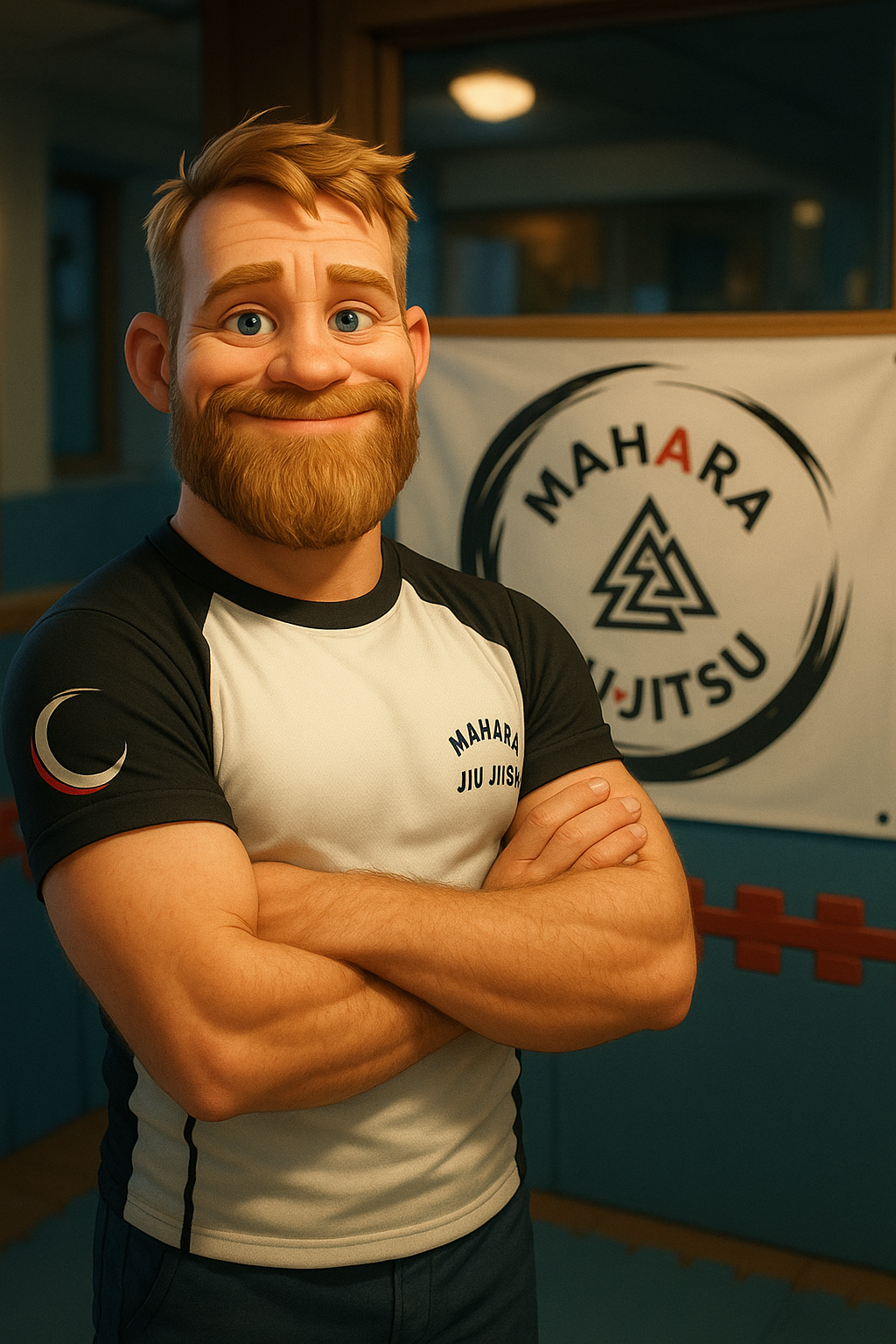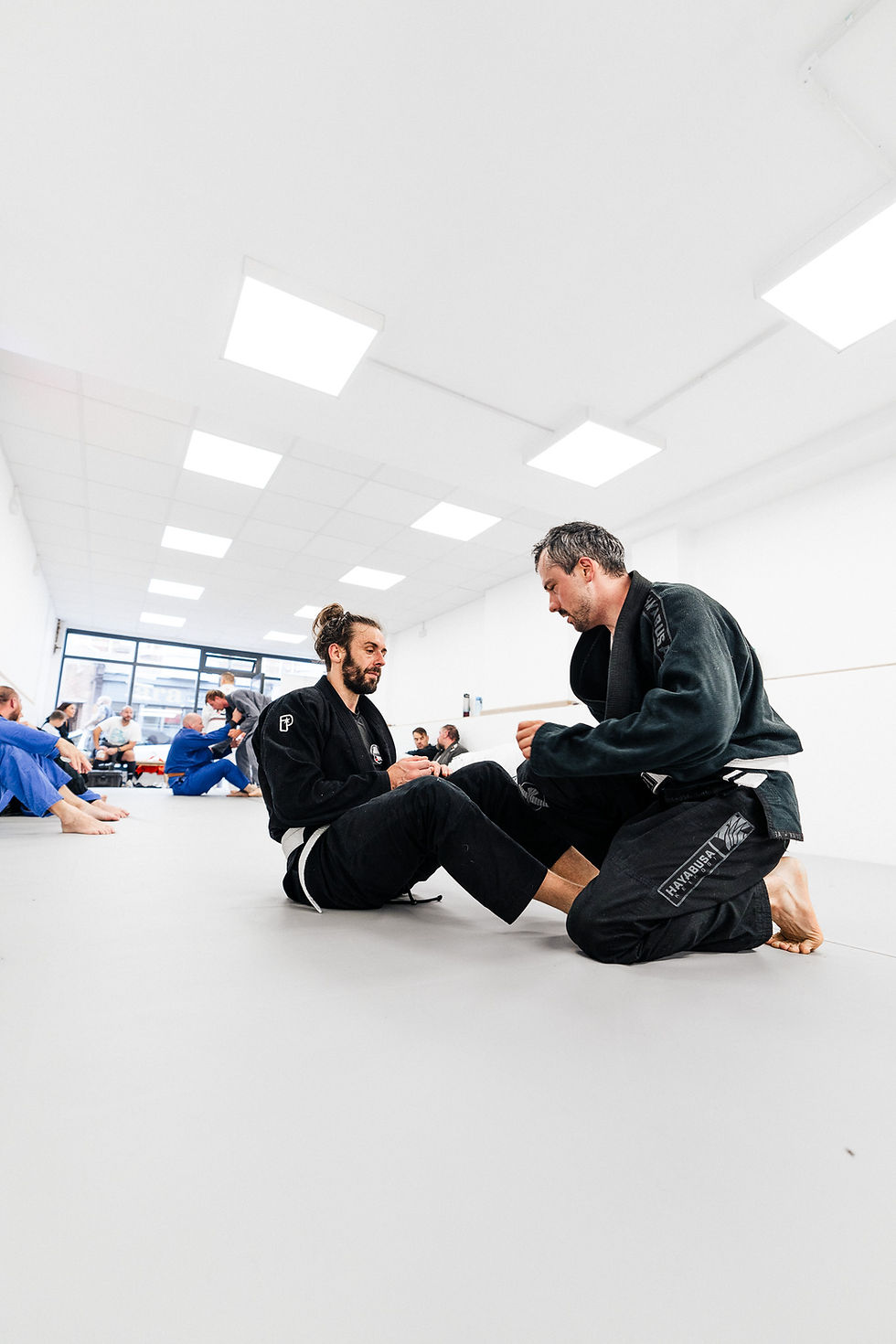What to Expect in Your First Brazilian Jiu-Jitsu Class
- maharajiujitsu

- May 27, 2025
- 4 min read
Starting a Brazilian Jiujitsu (BJJ) class can be both exciting and intimidating. Whether you are looking to improve your fitness, learn self-defence, or compete, your first class will set the tone for your Brazilian Jiu-Jitsu journey. In this article, we will guide you through what to expect during your first BJJ class, how to prepare, and tips to make the most out of your training.
Jiujitsu Class: The Basics
When you arrive at your first Brazilian Jiujitsu class, you might notice a few things. The dojo or training space is usually lined with mats, often in a large open area. Students are typically wearing gis, the traditional cotton uniforms, which may seem foreign to you if you're new to martial arts. However, some schools allow students to wear rash guards and shorts during their initial classes.
Upon entering, introduce yourself to your instructor and let them know it's your first day. Many instructors are accustomed to beginners and will help you feel at home. Classes usually start with a warm-up to prepare your body for the physical demands of the training.

As you prepare for your class, it’s essential to understand the basic concepts of Brazilian Jiujitsu. BJJ focuses on ground fighting and submission holds. The primary goal is to control your opponent and either submit them or escape from a position of disadvantage.
The Structure of Your First Class
Your first BJJ class will often begin with a warm-up session that includes stretching and mobility exercises. Expect to engage in some basic drills that help introduce you to the movements in BJJ. You might practice rolling, bridging, and shrimping, which are fundamental movements in your training.
Following you will do some form of judo or takedown drill which will be part of the warm-up, your instructor will demonstrate specific techniques. For beginners, the class will likely cover a fundamental position such as the guard or mount. You will learn the importance of these positions and get hands-on experience practicing them with a partner.

During drilling, focus on the technique being shown. It’s common to feel overwhelmed with all the information initially, but don’t worry — this is part of the learning process. Remember, everyone was a beginner once, and your training partners will likely be happy to help you.
Is 2 Times a Week Enough for BJJ?
As a beginner in Brazilian Jiujitsu, you may wonder how often you should practice to see progress. Many people start by attending classes twice a week. While this can be a good starting point, the frequency ultimately depends on your goals and schedule.
If you are looking to learn self-defense or improve your fitness, two classes a week may be sufficient. However, if you are interested in competing, consider increasing your training frequency to three or more times a week. BJJ is skill-intensive; the more you practice, the quicker you will improve.
Ultimately, consistency is key. Training regularly will allow you to refine your techniques, build muscle memory, and increase your comfort level within the sport.
Understanding the Etiquette
Every martial art has its own set of rules and etiquette, and Brazilian Jiujitsu is no different. Respect is a cornerstone of BJJ. Here are a few essential points of etiquette to keep in mind during your first class:
Book in and say hello before the class: Make sure you book your class, there are limited places, and will always look to fit everyone in who wants to train. Acknowledge the instructor teaching the class as a way of courtesy.
Cleanliness: Ensure that your gi is clean and that you maintain personal hygiene. This practice is crucial in any contact sport.
No Shoes on the Mats: Always remove your shoes before stepping on the training mats to keep them clean.
Tap Out: If you find yourself in a compromising position during sparring, tap your partner or the mat to signal that you need to stop. This taps into the spirit of safety and respect that is fundamental to BJJ.
Be Supportive: Encourage your training partners and be open to their questions. The BJJ community is usually supportive and welcoming.

Building Your Gear and Equipment Collection
As you get deeper into Brazilian Jiujitsu, you may want to invest in your own gear. Here’s a breakdown of what you’ll need:
Gi: This is the traditional uniform worn in BJJ. A well-fitted gi allows for movement while offering durability during practice.
Rash Guard: For no-gi classes, a rash guard is essential. It’s designed to absorb sweat, reduce friction, and protect your skin.
Shorts: If you're training no-gi, make sure to get proper shorts that allow for fluid movement.
Belts: As you advance through the ranks, you’ll earn colored belts to signify your progress in the art.
Mouthguard: This is recommended for sparring sessions to prevent dental injuries.
Pricing and Membership Options
Mahara's membership options, including pay-per-class, monthly memberships. Memberships are a great and easy to book option with no new joiners fees.
The Personal and Physical Benefits
Training in Brazilian Jiujitsu not only builds physical fitness but also improves mental strength. You'll develop endurance, flexibility, and coordination, all while learning valuable self-defence techniques.
The mental aspects of BJJ, such as problem-solving and strategic thinking, are equally important. You will face various scenarios on the mat, forcing you to analyze, adapt, and respond quickly to your partner's movements. This form of mental agility can transfer to many areas of life, enhancing your decision-making skills both inside and outside the dojo.
Additionally, companionship is a significant part of the BJJ community. Training with diverse individuals often creates lasting friendships. You'll meet people from all walks of life, fostering a supportive environment filled with encouragement and growth.
Before You Start
Your first Brazilian Jiujitsu class will be an eye-opening experience, filled with challenges and an immense opportunity for growth. Approach your training with an open mind, patience, and enthusiasm. Remember, progress takes time and dedication, so focus on enjoying the journey rather than fixating on immediate results.
Make the most of your experience by setting realistic goals, communicating with instructors, and continuously seeking improvement. Brazilian Jiujitsu is not just a martial art, but a lifestyle that fosters discipline, respect, and a profound sense of achievement.
As you prepare for your first class, remind yourself to breathe and have fun. With every roll and drill, you’ll be taking an invaluable step in your personal development.
ADZ
Mahara Head Coach






Comments